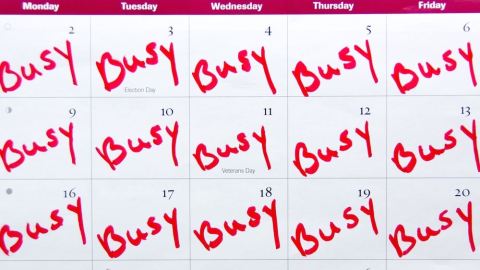Technology Took Our Happiness. Time to Get it Back.

Continuous advances in digital technology have made the world more efficient than ever. Yet many of us feel pressed for time, suffering the stress of simply maintaining a social and professional life. But solutions to the problem—either squeezing more time out of the day or disengaging from our revolutionary technology—seem insufficient.
Judy Wajcman, professor of sociology at London School of Economics, recalls a time in the recent past when a vast utopia of human leisure was expected to follow from machine automation. In that bright, shining future, workers would be spared from dingy factories and home life would be liberated from back-breaking chores. That has come true, to be sure, but now we are out of work and paying hand-over-fist for modern “conveniences.”
What’s clear is that humans are not capable of matching their smart phone when it comes to always being turned on and ready to work. Taking breaks during the day is essential, and learning when you’re most effective at work can help you save important time for family and friends.
If it seems like all the effort required to to live in a modern urban environment—where interesting cuisine and novel entertainment are endless—takes us away from slow, boring community life, you’re not alone. But pursuing self-satisfaction is recipe for unhappiness, says American columnist Lenore Skenazy. She offers tips on how to put the tech away and return to the world of the living. After all, it’s human relationships that make us safe, secure, and happy:
Photo credit: Shutterstock




